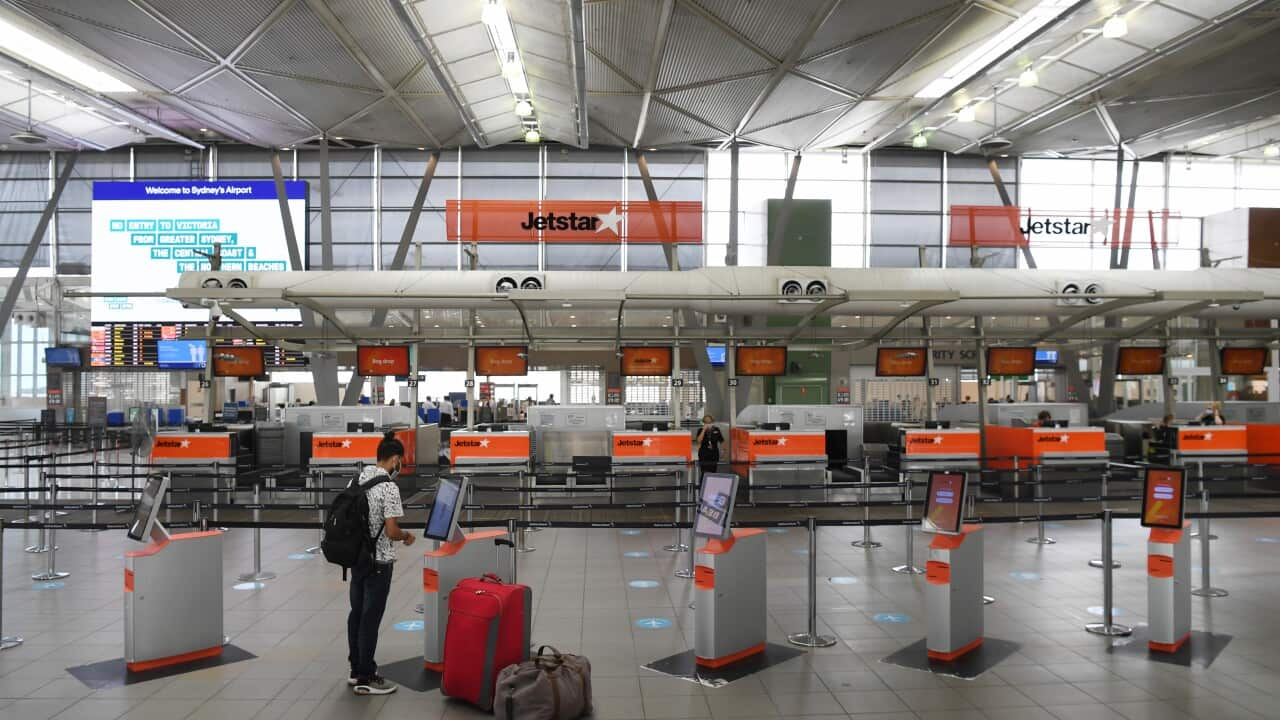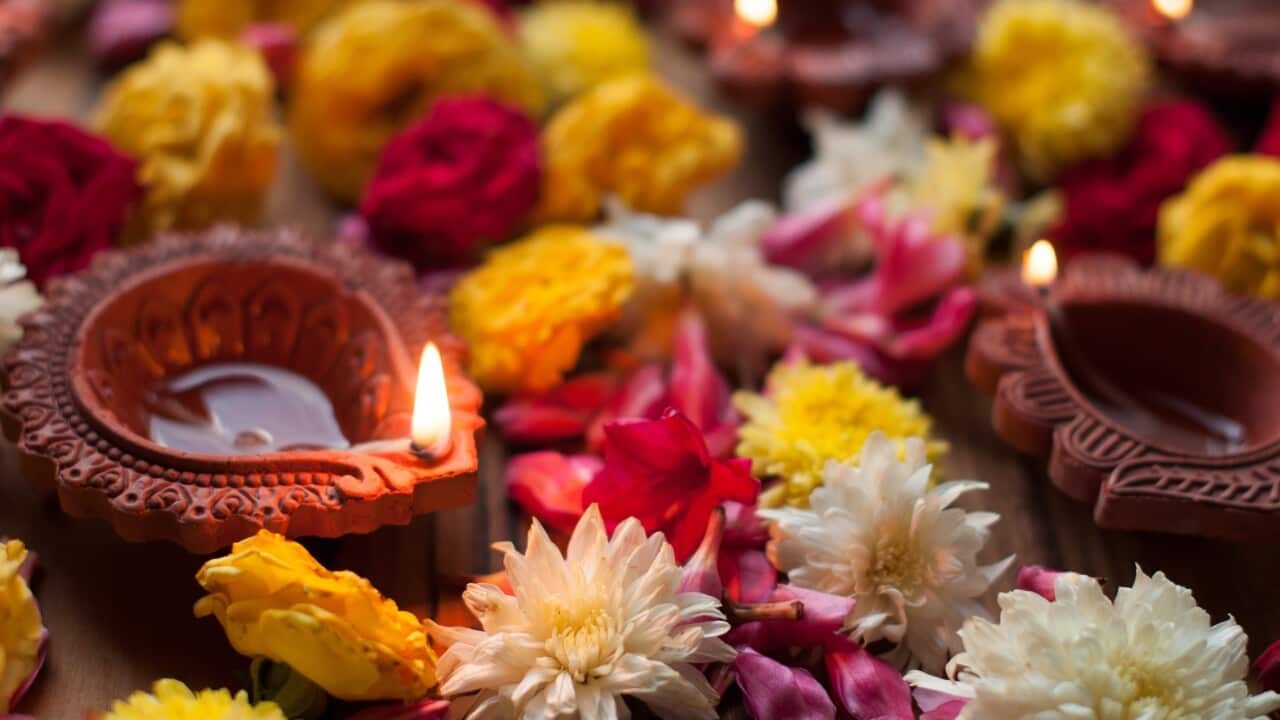Highlights:
- Australia has strict border measures in place.
- Temporary visa holders can come into the country only after an exemption is granted.
- There are few options available for the family members of temporary residents of Australia.
Mr Sha* is hoping that his wife will join him soon in Australia. They have booked a ticket from India to Australia, and Mrs Sha will be travelling soon. It was a pleasant surprise for Mr Sha to receive an exemption for his wife as a temporary resident of Australia.
It was a pleasant surprise for Mr Sha to receive an exemption for his wife as a temporary resident of Australia.

Passengers from Sydney arrive at Perth Airport in Perth, Monday, December 21, 2020. Source: AAP Image/Richard Wainwright
“I received the exemption mail last week,” he told SBS Hindi.
Australia has strict border measures in place and people cannot come to Australia “unless you are in an exempt category or you have been granted an individual exemption to the current travel restrictions,” according to the Department of Home Affairs.
Those who are allowed to travel to Australia include the citizens and permanent residents of Australia and their immediate family members.
Mr Sha is not a citizen or permanent resident of the country. He is on a Temporary Skill Shortage visa (subclass 482) and has been working in Brisbane for the past three years.
He applied under the critical skill category and received the exemption after following the due process. “I provided all the documents for that, means my visa, my wife’s visa, our marriage certificate, and for reference to my employer, I provided salary slips for the last few months.
“I provided all the documents for that, means my visa, my wife’s visa, our marriage certificate, and for reference to my employer, I provided salary slips for the last few months.

Departing passengers make their way at the domestic terminal in Brisbane airport , Sunday, December 20, 2020. Source: (AAP Image/Dan Peled
“Normally they respond in 48 hours, but in my case, after 48 hours they asked for a letter from my employer and asked me to submit that in the next 2 days.”
“I requested my employer for the same. And, before my employer provided the letter Home affairs provided me the exemption,” explained Mr Sha.
Although many have not received exemptions to travel to Australia, Mr Sha believes his critical skill helped in his case.
“What I heard from my friends and colleagues is, if you work in a critical skill, and if you provide required documents, they normally give exemption,” says Mr Sha.
The Department of Home Affairs says individual exemptions may be granted in certain cases.
Individual exemptions
The Commissioner of the Australian Border Force and decision-makers may grant you an individual exemption if you are:
- a foreign national travelling at the invitation of the Australian Government or a state or territory government authority for the purpose of assisting in the COVID-19 response
- a foreign national whose entry into Australia would be in the national interest, supported by the Australian Government or a state or territory government authority
- providing critical or specialist medical services, including air ambulance, medical evacuations and delivering critical medical supplies
- a foreign national with or working in a critical sector in Australia
- a foreign national sponsored by your employer to work in Australia in an occupation on the
- military personnel, including those who form part of the Status of Forces Agreement, Commonwealth Armed Forces, Asia Pacific Forces and Status of Armed Forces Agreement
- a person who resides on a vessel that seeks safe port at the closest appointed port for reprovisioning or safety reasons for a limited duration, supported by the relevant State or Territory government where safe haven is sought
- a student completing year 11 and 12, with support from the relevant Australian State or Territory government health authority and education department
- a student in your final two years of study of a medical, dental, nursing or allied health profession university degree, where you have evidence of a confirmed placement in an Australian hospital or medical practice which commences within the next two months
- travelling for compassionate and compelling reasons.
*Name withheld upon request
Disclaimer: We’d like to point out that the information contained in this segment is general and is not specific advice. If you would like accurate information relevant to your situation, you should ask a registered migration agent.
People in Australia must stay at least 1.5 metres away from others. Check your jurisdiction's restrictions on gathering limits.
If you are experiencing cold or flu symptoms, stay home and arrange a test by calling your doctor or contact the Coronavirus Health Information Hotline on 1800 020 080.
Please check the relevant guidelines for your state or territory: , , , , , ,






